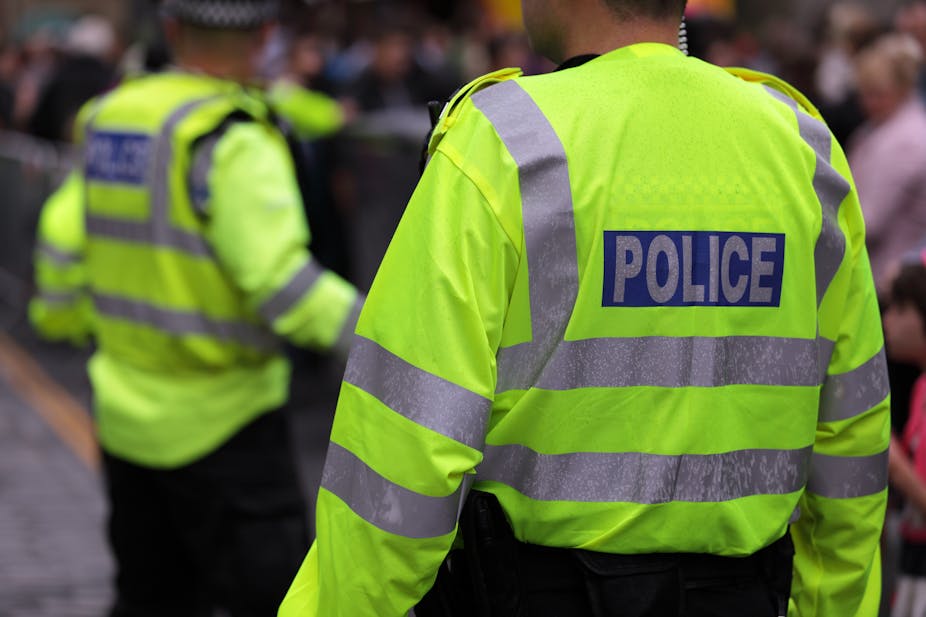A report from Her Majesty’s Inspectorate of Constabulary has revealed that police in England and Wales fail to record in excess of 800,000 crimes a year. That’s one in five offences; over one-quarter of all crimes reported to the police.
As a police detective in the 1970s and 1980s, an important part of my role, indeed mission, was to “massage” crime figures, apparently in the interests of effectiveness and efficiency. And while major changes have been pushed through since that time, it seems the same old problem remains.
Back then, high detection and low reporting was an accepted part of the detective’s “craft”. Although the crime report book was available to the uniform department, CID officers strictly monitored what was, and was not recorded in it. Detectives were the guardians of the figures and those figures had to reflect success rather than failure, at all cost.
This occupational culture of manipulated success existed extensively throughout the police at the time. Individual police officers have also been attributed traits such as suspicion, cynicism and machismo. These influenced decisions about whether or not to record allegations of crime from “risky” individuals.
Of course this was not just a culture on the ground. It was an endemic culture which must have received the nod and the wink from the highest officers in the force and officials in the Home Office.
The late 1980s and early 1990s, however, heralded a neo-liberal culture change in policing. Effectiveness and efficiency became the buzzwords as the philosophy of New Public Management took hold. This approach is fundamentally about reducing local autonomy and discretion and handing greater power back to central government.
In the police service, it meant redistributing power away from the autonomous detective through business-like management and accountancy of his/her functions.
Thousands of staff have been shed along the way and citizen volunteers have been increasingly brought in.
But when we hear the details of the report published this week, effectiveness and efficiency are far from the first words that spring to mind. Among the samples included in the report are 37 rape allegations not recorded as a crime. There were 3,842 reported crimes for which offenders were given a caution or a penalty notice, 500 of which should have resulted in a heavier penalty.
On top of that, 3,246 incidents had been recorded and then deemed to be “no crimes” even though in around 20% of cases a crime had indeed been committed. The incidents recorded as “no crimes” included 200 reports of rape and 250 of violent crime. More than 800 of the victims were not told of the decision to record their allegation as “no crime”.
This follows a report just last year from MPs that warned police were fixing crime statistics to meet targets.
And now, in the wake of this latest report, some officers and staff have said performance and other pressures are distorting their crime-recording decisions. A number of forces admitted this. Inspectors were told that pressure to hit crime-reduction targets had the effect of limiting the number of crimes recorded.
Chief Superintendent Irene Curtis, president of the Police Superintendents’ Association, said that recorded crime was a measure of demand on police resources rather than police performance. Chief Constable Jeff Farrar, lead for crime recording at the Association of Chief Police Officers, said: “Pressures from workload and target culture, use of professional judgement in the interests of victims, lack of understanding of recording rules or inadequate supervision can all lead to inaccurate crime recording”.
This will all sound familiar to police officers who served in an earlier cultural period. Indeed, in a statement which had inferences of the police institutional culture of that earlier time, Her Majesty’s Inspectorate of Constabulary said the police should immediately institutionalise the presumption that the victim is to be believed.
It has been argued that because police work involves so many tasks, they can’t all be accomplished effectively. The police instead have to manipulate their appearance to seem effective and efficient.
This report from HMIC appears to confirm the problem. Despite attempts to change the face of the police, they continue to manipulate their image as the guardians of the status quo in British society.

